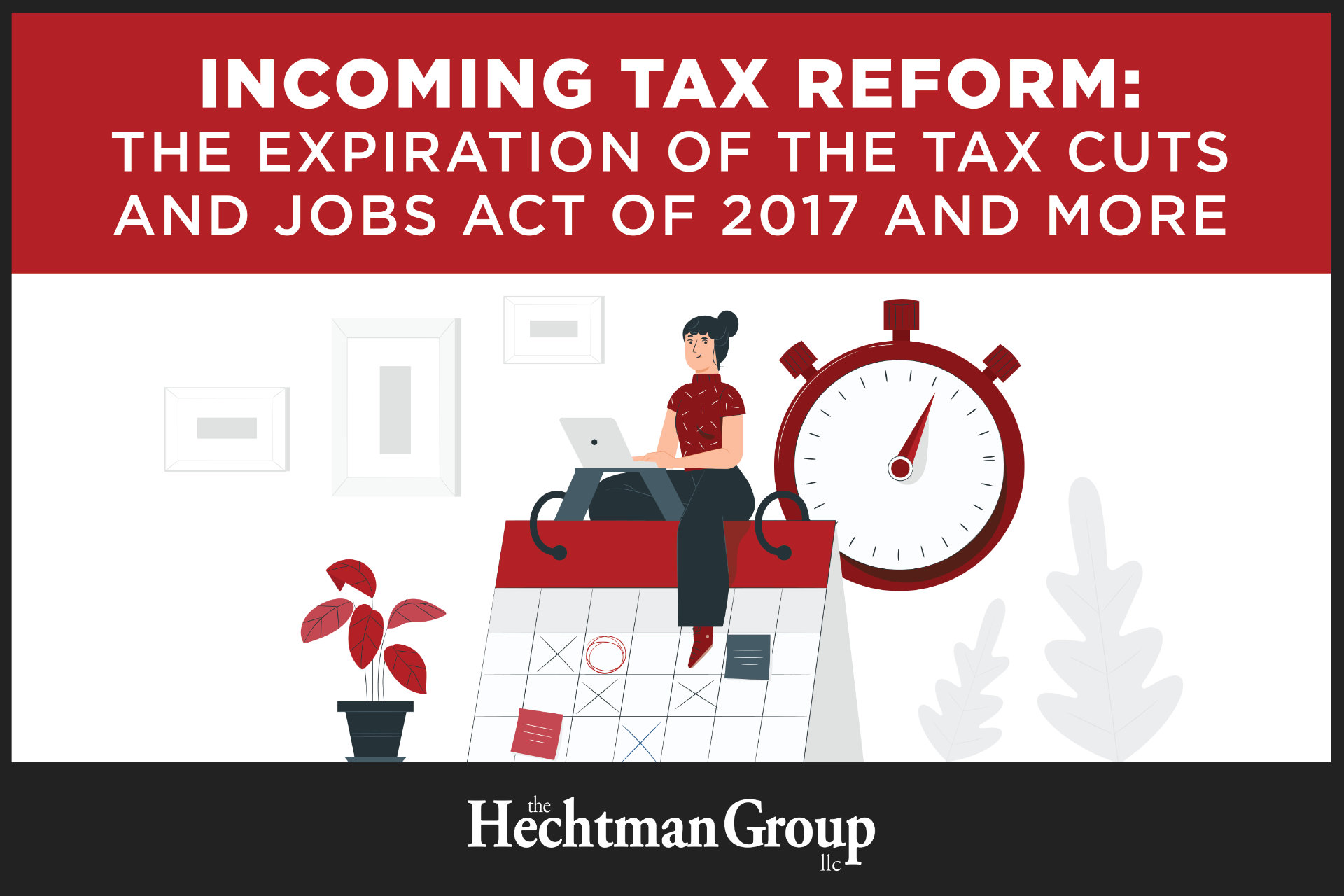
What to know about the TCJA’s expiration at the end of 2025 and how the uncertainty of the upcoming election has complicated tax planning
The upcoming 2024 Presidential election holds the potential to disrupt much of the country, the tax code included. When compounded with the instability of the majority in Congress, the tax regulations could look a lot different in the near future. Thus, prudent taxpayers must be aware of these possible changes and begin planning accordingly.
What is the Tax Cuts and Jobs Act of 2017 (TCJA)?
Signed into law in 2017 by President Trump, The TCJA was a reform to the federal tax code that shifted taxes owed by individuals and businesses. It aimed to stimulate the economy by slashing tax rates and income thresholds across the board. More specifically, the main components of the TCJA:
- Lowered individual income tax rates
- Expanded range of tax brackets
- Increased standard deduction from $6,500 to $12,400 and $9,500 to $24,800 for single filers and married filers respectively
- Eliminated several miscellaneous deductions such as investment management fees and tax preparation fees.
- Limited specific itemized deductions such as the state and local tax deduction, also known as the “SALT” cap.
- Eliminated personal exemptions for tax years after 2018.
- Doubled the Child Tax Credit and increased its income threshold
- Lowered corporate income tax from 35% to 21%
- Doubled Estate Tax Exemption from $5 million per descendent to $10 million per descendent Currently, the exemption is over $13 million due to it being adjusted for inflation annually.
These changes heavily simplified the tax filing process for many Americans by making standard deductions the most financially responsible choice. Unless extended, most of these changes enacted by the bill are set to expire December 31st, 2025. This will increase the complexity and amount of taxes many American individuals and business owners will have to pay in the following fiscal year. With a new Congress and potentially new President, all tax options are on the table. Indeed, the pressure is on for Congress to enact new tax legislation to address these changes.
Republicans are likely to prioritize extending the TCJA’s decreased individual tax rates and expanded standard deductions. They will also seek to keep the corporate tax provisions and estate tax exemptions intact. Democrats, on the other hand, will likely focus their efforts on increasing the tax rates for individuals making $400,000 or more but protecting the other tax rate cuts for those making below. Additionally, it is presumed they will fight to extend the enhanced Child Tax Credit and to protect the IRA Clean Energy incentives. Both parties have a shot at attaining a majority in Congress this November and assume drastically different approaches in mending the tax system following the TCJA’s expiration.
If these tax regulations are extended, it is possible the U.S. government will look elsewhere to offset its losses accrued by tax cuts. This could take the form of tariffs, higher taxes on corporations, investment, or savings,
In need of tax planning advice ahead of the uncertain next 18 months? Contact us today to begin strategizing your tax contingency plans. The team here at The Hechtman Group can help you prepare for any scenario that may play out with individualized care each step of the way.
At The Hechtman Group LLC, we understand the burdens small businesses endure in assuming more than one role to support the organization. That’s why we offer highly experienced client advisory services (CAS) for companies who can benefit from outsourcing their accounting, CFO, or Controller consulting needs. Additionally, our comprehensive expertise in QuickBooks certified ProAdvisor means that we can create a tailored accounting solution to centralize your finances and simplify your books. Our CPAs and accountants can guide you through all the necessary steps while also creating best practice opportunities for long-term growth.